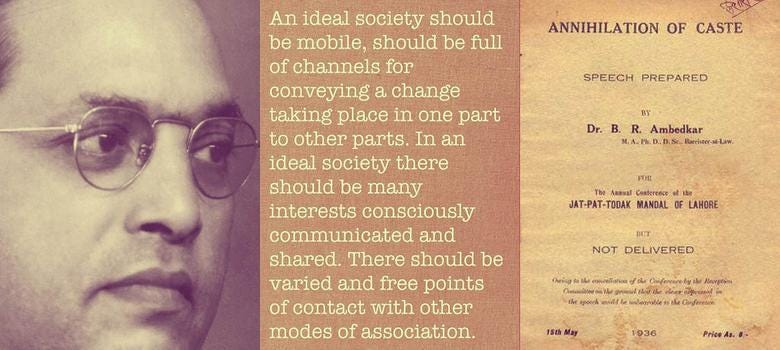
On August 7, 1990, Prime Minister V P Singh, driven by his own set of political difficulties, announced in Parliament that the Mandal Commission’s recommendations for reservation of Other Backward Classes would be implemented. It was a turning point for Indian Political system, marking the advent of what came to be known as Mandal politics that was centred on the interests of the backward class voter and transforming the nature of electoral politics with the rise of leaders like Mulayam Singh Yadav, Lalu Prasad, Nitish Kumar and Sharad Yadav.
Three decades later, the country, which is on the cusp of a general election, is witnessing the return of Mandal politics. There is a growing clamour for a caste-based census, with the opposition parties seeking to make it their main election plank. Leaders of the opposition alliance have stressed on carrying out a caste-based census and raising 50 per cent ceiling on reservation. The result of the caste-based survey carried out in Bihar, which pegs the number of extremely backward classes and other backward classes together at 63 per cent, provide a statistical basis for the demand being made for proportionate reservation and a caste count at the national level.
The last time a caste census was held was in 1931. The Mandal Commission’s recommendations are also based on figures extrapolated from data. A major point of argument in favour of a caste census is that schemes and affirmation action today are based on outdated figures. OBC leaders believe that their share of the population could be around 60 per cent or the country’s total, and some say it could even be more than 70 per cent. A simmering demand for representation based on current figures now appears to have taken the form of an idea that is irresistible, both socially and politically.
The social sentiment that is being articulated by the political parties is about a remedy to the prevailing situation where power and resources are seen as concentrated in the hands of a small section of society. It is felt that political representation has not translated into institutional representation. “To tackle the problem of the oligarchic rule of the Hindu upper caste, the representation of the other sections in the institution has to be enhanced. Each community’s strength needs to be counted and adequate representation provided to them,” said eminent scholar G Mohan Gopal. “Why has it not been done? Because it is feared that the members of the communities that dominate the power structure are much less than their representation.”
A highlight of what could be described as Mandal 2.0 is the spectacular change of stance of the Congress on the subject of caste census and reservation for OBC. At its plenary session in Raipur earlier this year, besides supporting caste census, the Congress also resolved to bring in reservation for OBCs, Scheduled caste and Scheduled tribes in judiciary and in private sector. It made a U-turn on the issue to quota-with-in-quota for the marginalized sections within the reservation for women in the legislatures, supporting it unlike 2010 when the women reservation bill piloted by Manmohan Singh government did not have a sub-quota. And it also made a commitment to reform the quota for the economically weaker sections by bringing within its ambit the poor from the backward classes and other marginalized sections.
It was in Karnataka assembly elections that Congress leader Rahul Gandhi first gave the slogan of ‘Jitni, Abadi, Utna Haq (proportionate reservation) and made the demand for a caste census. The slogan, a variation of similar slogans raised by socialist ideologue Ram Manohar Lohia and BSP leader Kanshi Ram, brought the Congress in sync with the Mandal Commission’s report, which had found virtue in proportionate representation. More recently both Rahul and Sonia Gandhi in the context of women reservation bill, backed quota—within—quota in the legislation. “The Congress Working Committee recently passed a resolution for caste census, and the party had also announced at the Raipur session that once we form government at Centre, we will carry out a caste census”, said Capt Ajay Singh Yadav, chairman of the Congress’s OBC department.
The OBCs were never a dedicated support base of the Congress in Hindi heartland. The party won elections in Uttar Pradesh and Bihar based on the backing of upper castes, dalits and Muslims, losing their votes with the rise of the politics of social justice on the one hand and the Hindutva-driven politics of BJP on the other hand. (IPA Service)
The post Strong Political Sentiments Blowing In The Country Favouring Caste Census first appeared on Latest India news, analysis and reports on IPA Newspack.


